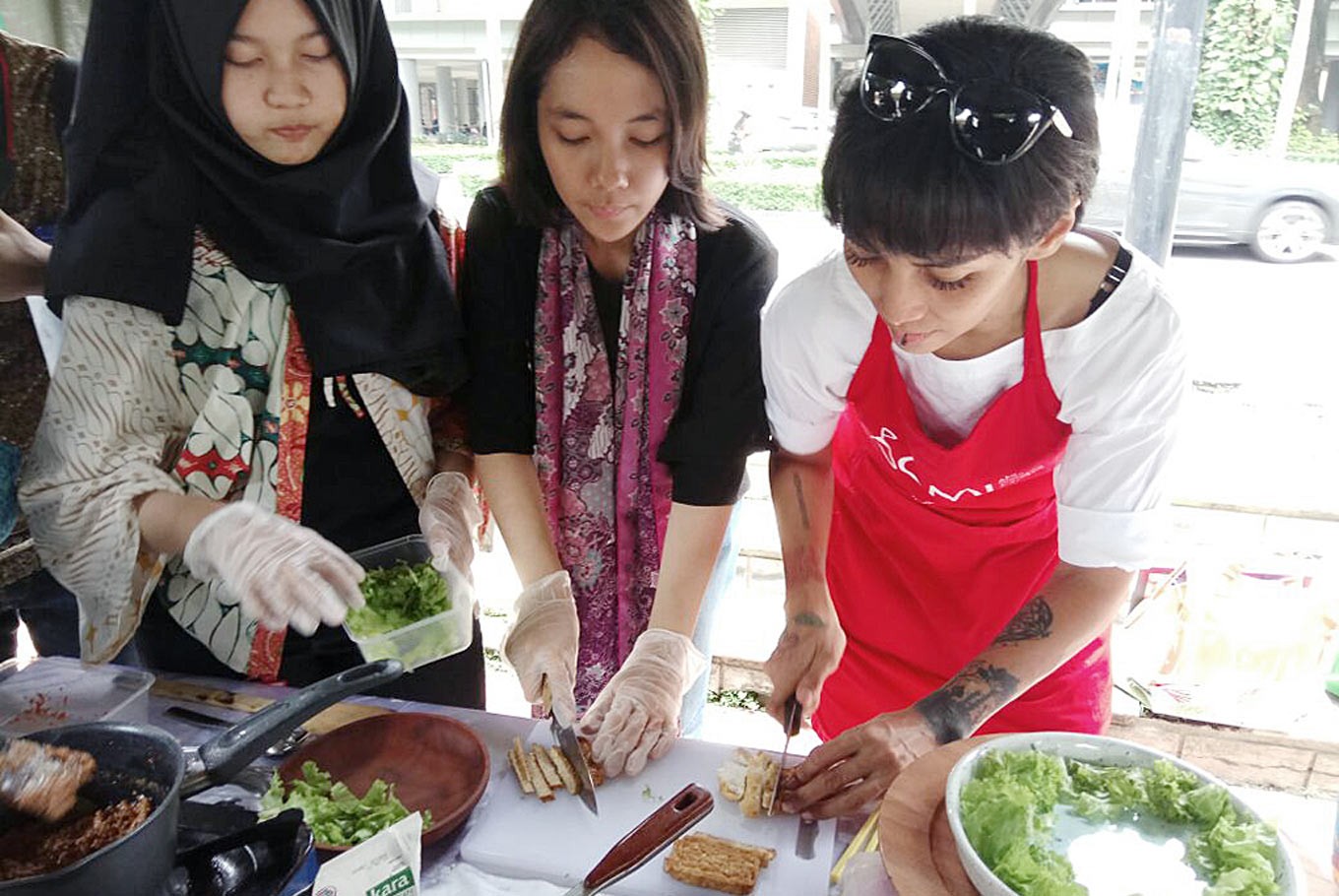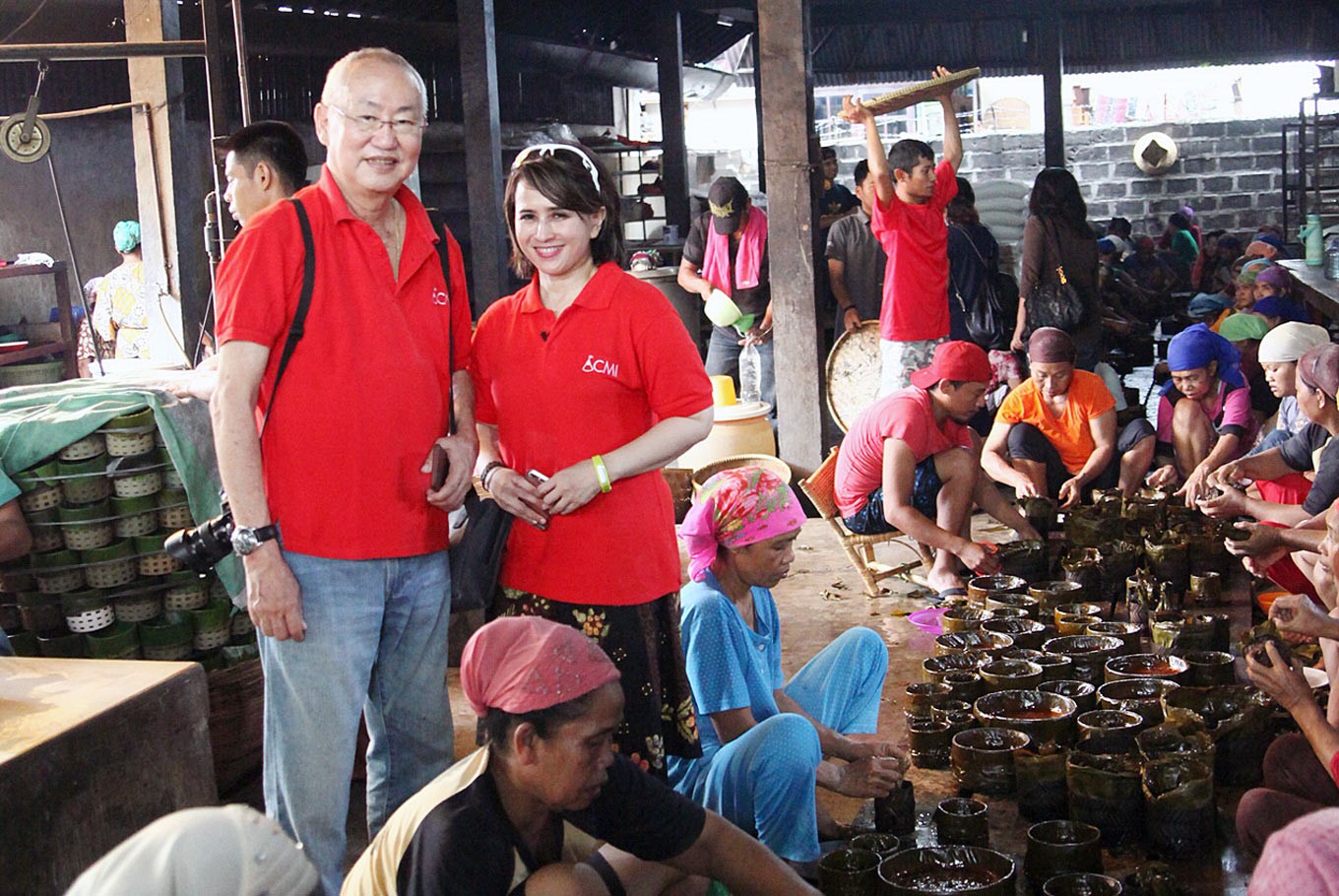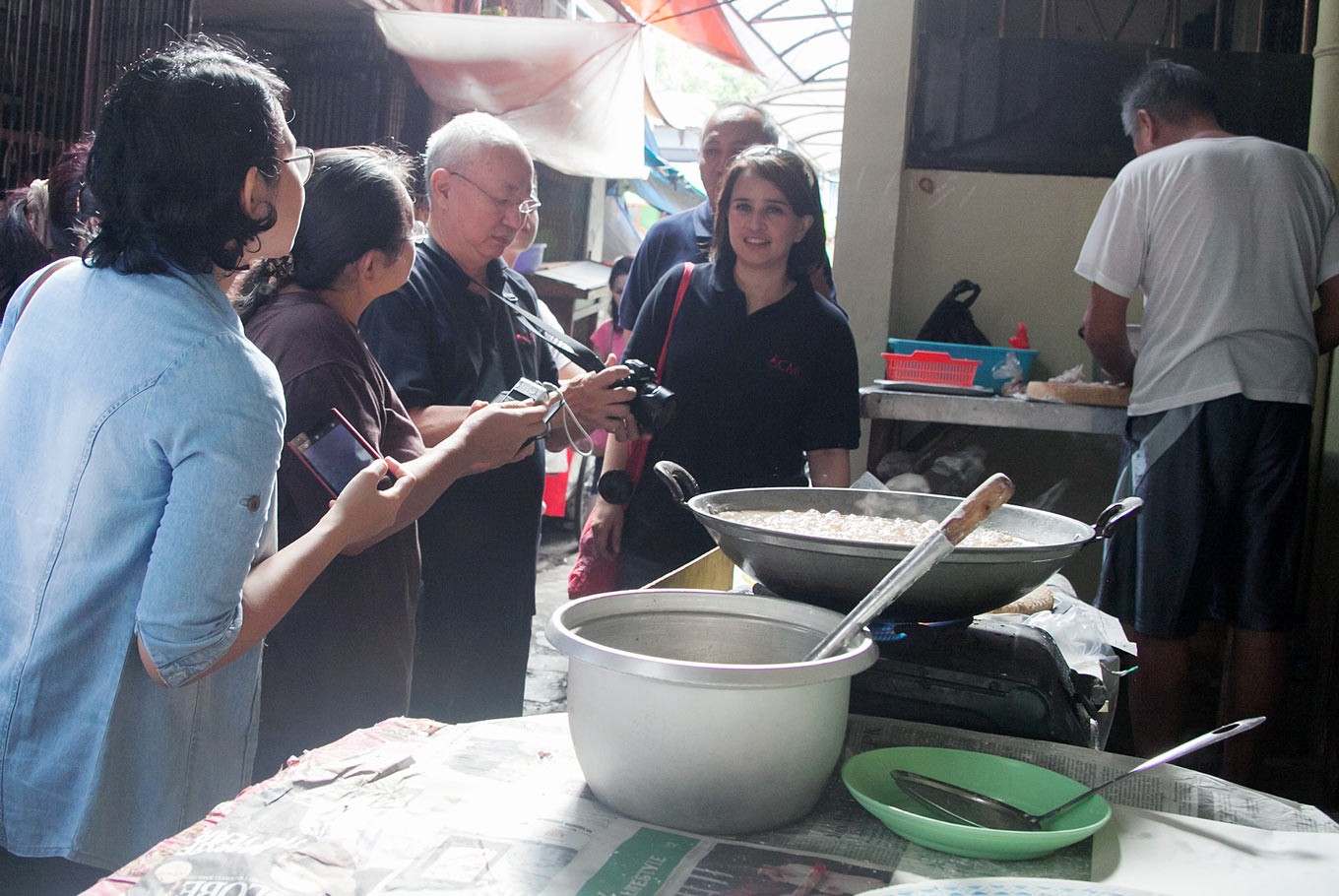Spreading love of Indonesian cuisine
Swapping recipes and exchanging information about new Indonesian eateries is what usually happens when members of Aku Cinta Masakan Indonesia (ACMI), an Indonesian food community, gather for a potluck meal together.
Change Size
 Collective cooking: At ACMI events participants cook Indonesian meals together. (ACMI/File)
Collective cooking: At ACMI events participants cook Indonesian meals together. (ACMI/File)
“We want everybody to be familiar with Indonesian recipes, dishes and methods of preparing Indonesian food,” said Santhi Serad, who is one of the cofounders of Aku Cinta Masakan Indonesia (ACMI).
The other cofounder of ACMI is culinary expert William Wongso, who is known for his passion for Indonesian cuisine.
Through ACMI, Santhi and William aim to nurture the love of Indonesian cooking not only among youths but also among international circles.
“Youths receive attention because this generation has since childhood been used to everything modern, thus taking less heed of predominantly traditional Indonesian food,” said Santhi about ACMI, which was officially launched in September 2012.
With the active culinary network of Santhi and William, a number of people were interested in taking part.
“The visual news spread rapidly so that many friends promptly expressed an interest in joining,” noted Santhi.
Milchatul “Mila” Akmalia, for instance, learned about ACMI through her husband, who once handled a project with Santhi.
“I was drawn by her concept so I decided to join,” Mila pointed out.

With the mission to preserve, develop, document and disseminate Indonesia’s traditional culinary wealth, various activities have thus been programmed, including potlucks and routine market visits.
While potluck participants normally bring along dishes to be consumed together with those present, this community sets a certain theme to be followed by potluck members gathering with their respective menu styles.
Read also: COMMENTARY: Forecasting the future of local celebrities' cake shops
ACMI’s most recent potluck was themed Rayuan Pulau Kelapa (coconut island), allowing full freedom to its members to interpret the theme for their creations. The food could be traditional or innovational.
What emerged were diverse coconut-based food and drinks, ranging from TobuU (cake from Gorontalo), Soto Degan (chicken soup with coconut water and flesh typical of Jember, East Java) and rendang jengkol (dogfruit cooked in coconut milk and spices) to cold brewed coffee with coconut water.
According to Santhi, participants’ creativity is honed through potluck meals, which also serve as a forum to repopularize various Indonesian culinary favorites and snacks. “TobuU, for example, isn’t that familiar to the younger generation of Gorontalo, let alone people outside of Sulawesi,” indicated Santhi.
The sweet snack made from coconut milk was presented by Dian Anggraini, a member of the Omar Niode Foundation.
“Omar Niode is engaged in the preservation of traditional Gorontalo food to make it better known by the public,” explained Dian.
TobuU uses Gorontalo coconut sugar wrapped in palm leaves and has a distinctive smoky taste. The same vision shared by Omar Niode and ACMI has led them to frequently cooperate. The other participants were people from different backgrounds like medical students, housewives and cafe owners.

Market exploration is ACMI’s other activity.
“We can get various Indonesian ingredients from markets, which sometimes are hard to find elsewhere,” said Astrid Enricka, who owns Aceh Rayeuk Restaurant.
Read also: Three tips to help spot halal Korean instant noodles
According to Astrid and Santhi, despite the popularity of supermarkets, different spices and even traditional snacks rarely found in other places are sold in the markets.
“Such markets are the heart of a city, where people not only conduct business but also interact with each other, exchanging news,” added Santhi, who studied food science and technology.
The markets chosen have their own unique features like Glodok, Pantai Kapuk Indah and Modern BSD markets. Although without setting age limits, those participating in ACMI’s market visits are mostly young people who seldom go shopping in such places.
Mila, Astrid and Santhi all stressed that they found shopping at the markets exciting.
ACMI’s fame is inseparable from social media. Some members, such as Rahung Nasution and Ade Putri Paramadita, are very active in posting photos on Instagram and interacting on Twitter, leading to a lot more people being informed about ACMI.
“We’re invited to various programs more often, at home and abroad, to introduce Indonesian cuisine. We’re also entrusted with recommending chefs who will accompany Indonesian ambassadors on their foreign assignments,” said Santhi.
However, Santhi and ACMI members still feel they haven’t sufficiently promoted Indonesian cooking. Many of their ideas to boost and document the diverse kinds of Indonesian cuisine haven’t yet been realized. This will indeed take a long time and the more people that get involved in ACMI’s efforts, the wider the way will be open to achieve the objectives.









